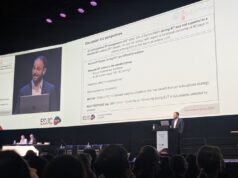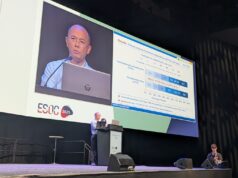 A recent Cerenovus study published in the Journal of Stroke (JOS) has found that in the treatment of acute ischaemic stroke, achieving complete or near complete reperfusion after a single attempt with mechanical thrombectomy (MT) not only provides improved functional outcomes for patients, but may also lower healthcare spending in the Asia Pacific region.
A recent Cerenovus study published in the Journal of Stroke (JOS) has found that in the treatment of acute ischaemic stroke, achieving complete or near complete reperfusion after a single attempt with mechanical thrombectomy (MT) not only provides improved functional outcomes for patients, but may also lower healthcare spending in the Asia Pacific region.
‘Health economic impact of first pass success: An Asia-Pacific cost analysis of the ARISE II study’ evaluates the implications of achieving first-pass effect (FPE) on the costs of hospitalisation and long-term care in patients with acute ischaemic stroke across Australia, India, Japan, South Korea, Singapore, and Taiwan.
FPE, defined as the complete or near complete reperfusion in a single thrombectomy pass, is an established indicator of technical and clinical efficacy among MT techniques, and should be the procedural goal in stroke treatment. Based on published studies, achieving first-pass complete reperfusion helps to shorten procedural time and reduces the risk of vessel injury and irritation.
In addition to improved functional outcomes, achieving FPE has the potential to generate significant cost savings throughout the continuum of care. The study found that FPE reduced the length of inpatient stay by 3.38 days, required fewer devices, and procedural-related costs fell by almost a third across all countries. The cost-savings reported in the study range from US$5,951 in Australia to US$3,981 in Singapore. The study further concluded that patients were able to reduce health expenditure on long-term care, particularly in countries such as Japan (US$2,941) and South Korea (US$5,084).
Commenting on the findings, lead author Leonard Yeo Leong Litt (National University Health System and National University of Singapore, Singapore) shared, “Improving patient outcomes is always at the heart of any advancement in healthcare—and when it has the ability to reduce the cost of care, for the individual and system at hand, that is when the impact becomes even greater.”
This economic analysis is based on a post-hoc analysis of data from ARISE II, paired with cost data from six countries in Asia Pacific. It is the first study quantifying the economic impact associated with improved functional outcomes when achieving FPE in the treatment of acute ischaemic stroke. ARISE II, a prospective, single-arm, international, multicentre clinical trial, investigated the efficacy of MT using the Embotrap revascularisation device (Cerenovus) in 227 patients.
The trial demonstrated a high FPE success of 40%, while typical rates are closer to 28%, as reported in a recent meta-analysis published by Mehdi Abbasi (Mayo Clinic, Rochester, USA) et al in the Journal of NeuroInterventional Surgery.
The full publication can be accessed here: https://www.j-stroke.org/journal/view.php?number=367.












